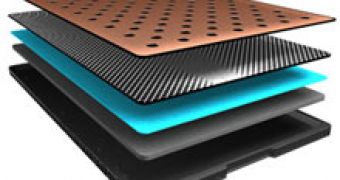Next year will see the commercialization of the first batches of zinc-air batteries, a new class of power-storing devices that can hold up to three times more electricity than existing lithium-ion batteries. The new devices will be released in a very small form at first, for use in devices such as hearing aids and other similar applications, but will be produced in the most sought-after variant as well, soon afterwards. Trondheim, Norway-based research institute SINTEF was the original developer of the new technology, Technology Review reports.
Staefa, Switzerland-based manufacturer ReVolt will be the main producer of the new class of batteries. The company's CEO, James McDougal, says that his firm's design managed to get past the severe limitations that plagued zinc-air batteries, namely the fact that they lost their ability to store power after only a few recharges. The official believes that, as soon as the technology gets scaled-up, zinc-air batteries could become a really efficient alternative for a power source inside electrical vehicles, at least until hydrogen fuel cells get developed. Retrofitting cars with the new batteries would decrease costs and increase ranges. A small range is the main reason why few people buy electric cars today.
Argonne National Laboratory (ANL) Electrochemical Energy Storage Department Manager Gary Henriksen says that, in the 1980s, the zinc-air concept was touted as one of the most promising types of battery designs in the world. Their high theoretical energy-storage capacity was very appealing to scientists. It came from the fact that the battery did not contain everything it needed in order to produce electricity within its confines, but rather relied on atmospheric oxygen to produce electrical current. Because the design does not require any volatile materials, the new batteries present no risk of catching fire, as their lithium-ion cousins do.
ReVolt is also planning what could be referred to as a modular battery design. In this approach, if an electrode breaks down, for example, the owner of the battery will be able to change that individual piece and not have to buy an entirely new battery. This could prove to be of tremendous use in electrical vehicles, where owners will have not one, but several of the devices inside their cars, and will not be able to afford changing them very often. The company admits, however, that several more years of wait are in store, before the new car batteries hit the shelves.

 14 DAY TRIAL //
14 DAY TRIAL //